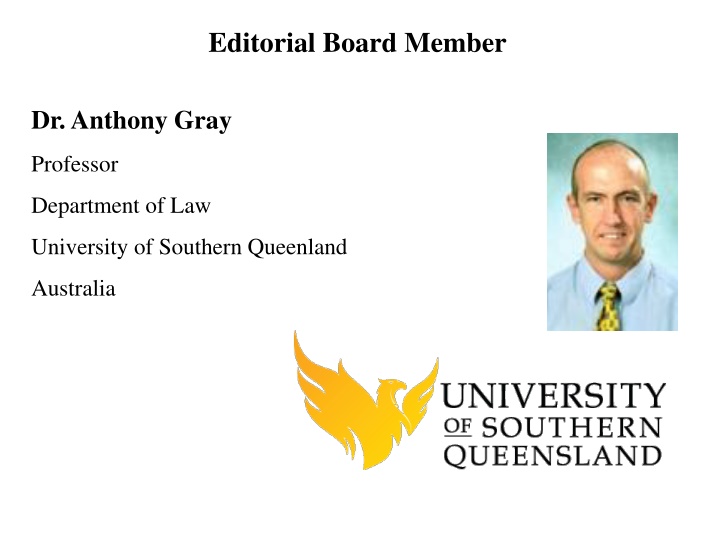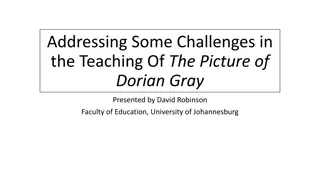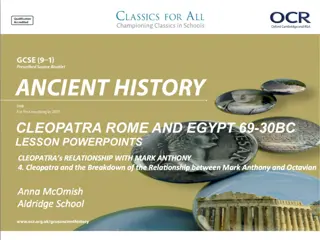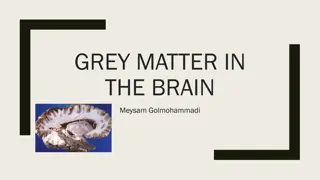
Constitutional Law and Human Rights: Dr. Anthony Gray's Expertise
Explore the expertise of Dr. Anthony Gray, a distinguished Professor of Law at the University of Southern Queensland, Australia. Delve into his research interests in constitutional law, human rights, and comparative law, as well as his contributions to the field. Discover the significance of constitutional law in defining state entities' relationships and the crucial role of human rights in safeguarding individual liberties against the state. Gain insights into Dr. Gray's impactful work and valuable insights in the realm of law.
Download Presentation

Please find below an Image/Link to download the presentation.
The content on the website is provided AS IS for your information and personal use only. It may not be sold, licensed, or shared on other websites without obtaining consent from the author. If you encounter any issues during the download, it is possible that the publisher has removed the file from their server.
You are allowed to download the files provided on this website for personal or commercial use, subject to the condition that they are used lawfully. All files are the property of their respective owners.
The content on the website is provided AS IS for your information and personal use only. It may not be sold, licensed, or shared on other websites without obtaining consent from the author.
E N D
Presentation Transcript
Editorial Board Member Dr. Anthony Gray Professor Department of Law University of Southern Queenland Australia
Biography Dr Gray is Senior Lecturer in Law at the University of Southern Queensland, Springfield. He was Head of the Law Department at USQ from 2005-2007, and Director at the Queensland Law Society from 2000-2002. Dr Grays research is in private and public international law, and Australian public law. He has published extensively on choice of law in tort. Dr Gray is a Member Queensland Legal Studies State Panel, and President Business Educators Association of Qld 2002 > > >
Research Interests Constitutional law, Human rights, Comparative law > > >
Constitutional law Constitutional law is the body of law which defines the relationship of different entities within a state, namely, the executive, the legislature, and the judiciary. Not all nation states have codified constitutions, though all such states have a jus commune, or law of the land, that may consist of a variety of imperative and consensual rules. These may include customary law, conventions, statutory law, judge-made law, or international rules and norms.
Human rights Human rights or civil liberties form a crucial part of a country's constitution and govern the rights of the individual against the state. Most jurisdictions, like the United States and France, have a codified constitution, with a bill of rights. A recent example is the Charter of Fundamental Rights of the European Union which was intended to be included in the Treaty establishing a Constitution for Europe, that failed to be ratified. Perhaps the most important example is the Universal Declaration of Human Rights under the UN Charter. These are intended to ensure basic political, social and economic standards that a nation state, or intergovernmental body is obliged to provide to its citizens but many do include its governments.
Some countries like the United Kingdom have no entrenched document setting out fundamental rights; in those jurisdictions the constitution is composed of statute, case law and convention. A case named Entick v. Carrington is a constitutional principle deriving from the common law. John Entick's house was searched and ransacked by Sherriff Carrington. Carrington argued that a warrant from a Government minister, the Earl of Halifax was valid authority, even though there was no statutory provision or court order for it. The court, led by Lord Camden stated that,"The great end, for which men entered into society, was to secure their property. That right is preserved sacred and incommunicable in all instances, where it has not been taken away or abridged by some public law for the good of the whole. By the laws of England, every invasion of private property, be it ever so minute, is a trespass... If no excuse can be found or produced, the silence of the books is an authority against the defendant, and the plaintiff must have judgment."
Comparative law Comparative law is the study of differences and similarities between the law of different countries. More specifically, it involves study of the different legal systems in existence in the world, including the common law, the civil law, socialist law, Jewish Law, Islamic law, Hindu law, and Chinese law. It includes the description and analysis of foreign legal systems, even where no explicit comparison is undertaken. The importance of comparative law has increased enormously in the present age of internationalism, economic globalization and democratization.
Thank You..! Thank You..!






















